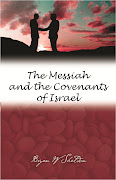The Bible rightly offers many titles of the Lord Jesus: from ’seed of the woman’ in Genesis to ’King of Kings’ in the book of Revelation. All are necessary to identify His many glorious attributes and offices. One of the first in the New Testament is ‘Son of Abraham’. Matthew begins: “The record of the genealogy of Jesus the Messiah, the Son of David, the Son of Abraham: Abraham was the father of ...” (Matt.1:1,2 (NASB)).
In this text Matthew identifies Jesus as Israel’s Messiah. This is quite Biblical. Jesus Himself advised the congregation in His home synagogue in Nazareth, that He was to embark on a Messianic ministry: “The Spirit of the Lord is upon Me, Because He has anointed Me To preach the gospel to the poor; He has sent Me to heal the brokenhearted, To proclaim liberty to the captives And recovery of sight to the blind, To set at liberty those who are oppressed; To proclaim the acceptable year of the Lord” (Luke 4:18–19).
Any Messianic claimant would need to have the appropriate ancestry – of the seed of Abraham, Isaac, Jacob; of the tribe of Judah; of the family of David. So when Matthew starts his gospel, he begins: “The book of the genealogy of Jesus Christ” and traces the family ancestry of the Messiah from Abraham, identifying significant punctuation marks on the way. “So all the generations from Abraham to David are fourteen generations; from David to the deportation to Babylon are fourteen generations; and from the deportation to Babylon to the Messiah, fourteen generations” (Matt.1:17 (NASB)). This has a very Jewish flavour and supports the thought that Matthew wrote for a Jewish readership.
So it was required of Jesus, if He were to be a true son of Abraham and brought under the Abrahamic covenant, to be circumcised. This was duly performed on the eighth day (Luke 2.21). And since He was born under the Law (that is, the Law of Moses (cf. Matt. 5:17)) it was also necessary that He should be redeemed (Exod.13:13; Numb.18:15). When Jesus was almost 6 weeks old, Mary and Joseph faithfully presented Jesus in the Temple, paid the redemption money and heard the priest offer the benediction for the firstborn over the Christ-child (Luke 2.22,23). At the same visit Mary went through the rite of purification (required after the birth of a baby). Right from His birth everything was performed that reflected He was of the stock of Abraham, Isaac and Jacob.
There is another more vital element to this aspect of the proper lineage. Jesus, during His public ministry, added one more qualification. Only those who did the will of God could be counted a true descendent of Abraham. John the Baptist implied it first when he said, “do not think to say to yourselves, ‘We have Abraham as our father.’ For I say to you that God is able to raise up children to Abraham from these stones” (Matt. 3:9; Luke 3.8). John was indicating that the proper ancestry was insufficient in itself; they needed to be acting like true children of Abraham.
The essence of this is repeated in the debate between Jesus and His Jewish listeners in John 8.38-45 “They … said to Him, “Abraham is our father.” Jesus said to them, “If you were Abraham’s children, you would do the works of Abraham.” (John 8:39) The works of Abraham are, of course, faith and obedience (cf. James 2:21).
Abraham’s faith is most clearly seen in Genesis chapter 15. The birth of Isaac was a long time coming, so he asked for some reassurance from the Lord. He got it: “… one who will come from your own body shall be your heir.” Then He brought him outside and said, “Look now toward heaven, and count the stars if you are able to number them.” And He said to him, “So shall your descendants be. And he believed in the Lord, and He accounted it to him for righteousness” (Gen. 15:4-6)
It is this promise of Isaac and those that will be born of his line that Abraham believed and was imputed righteous. And this is where Paul finds authority for the doctrine of imputed righteousness, and significantly this is the place where the heavenly seed is promised, the seed that will benefit from the imputation of the righteousness of Christ. The blessings of the New Covenant are founded on this event here.
The expositor of justification by faith, Paul, recognised the inclusion of the Gentiles in the covenant ceremony of Genesis 15. “Therefore it is of faith that it might be according to grace, so that the promise might be sure to all the seed, not only to those who are of the law, but also to those who are of the faith of Abraham, who is the father of us all. (as it is written, “I have made you a father of many nations”) (Rom. 4:16,17) This is acceptable in that the original statement says ‘in thee shall all families of the earth be blessed’.
Next Time: Abraham's Obedience



